
Viewpoints | May 31,2025
On the morning of August 30, 2019, Keiichi Furukawa, executive officer of Fukunaga Engineering, and Habtom Welday, an intern at the same company, were at Pacifico Yokohama, officially known as Pacific Convention Plaza Yokohama, one of the largest convention and exhibition centres in Yokohama, Japan.
The two young men represent a company with headquarters in Osaka, Japan that works on recycling tyres and metal materials and has a plant in Vietnam.
Recently, Fukunaga Engineering, established in 1994 with 282,232 dollars in capital and now sporting revenue of 7.7 million dollars in just the last six months, began eyeing Ethiopia as an investment destination.
The company, which is also engaged in producing and selling flexible containers and puncture-proof tyres, has been conducting a feasibility study for the establishment of a tyre recycling plant in Ethiopia over the past year.
It also sent a team of experts to explore potential business opportunities in Ethiopia and found out that there are only a few companies that thread and recycle used tyres.
Habtom, who studied for his master’s degree in Japan under Abe Initiative, a programme that offers opportunities for young Africans to gain second degrees in Japanese universities and to experience internships at Japanese enterprises, is helping the company in realising this investment.
The programme Habtom attended was launched in 2013 during the fifth edition of the Tokyo International Conference on African Development (TICAD 5). The plan was kicked off after Japan recognised that there is a need for human resource development in both the private and public sectors of Africa to cultivate a strong social network between Japan and Africa.
Since it was launched, the programme has enrolled a total of 2,700 young Africans including Habtom, who got the scholarship after passing a rigorous screening process that took almost a year.
After he graduated last June, he joined Fukunaga Engineering as an intern for six months, helping the company through its planned investment project in Ethiopia.
Last week, he and his boss were invited by The Ministry of Environment of Japan to make a presentation on the African Clean Cities Platform (ACCP), a platform to promote the Sustainable Development Goals (SDGs) on waste management in Africa. They were invited to present their project proposal for the planned tyre recycling plant in Ethiopia.
Their presentation took place at one of the sessions held a day before the opening of the three-day TICAD 7 Summit, which Japan launched to strengthen its presence in Africa. The summit was opened under the theme of “Advancing Africa's Development through People, Technology and Innovation.”
One of TICAD 7’s side events, Horn of Africa Peace & Instability, saw the attendance of Japanese Prime Minister Shinzo Abe, Prime Minister Abiy Ahmed (PhD) and Mohamed Abdullahi, president of Somalia.
Led by Prime Minister Abiy Ahmed (PhD), the Ethiopian delegation that was accompanied by Gedu Andargachew, minister of Foreign Affairs, Seleshi Bekele (PhD), minister of Irrigation & Electricity, Getahun Mekuria (PhD), minister of Innovation & Technology, and Ahmed Hamza (B. Gen), director-general of Metals & Engineering Corporation (MetEC), attended the summit held in the Japanese port city of Yokohama.
Inaugurated in 1993, TICAD was held every five years until its fifth session took place in 2013 in Yokohama. Since then, it has been held every three years, with its first session being held in Africa three years ago in Nairobi, Kenya.
Japan has been hosting the summit in collaboration with the United Nations, United Nations Development Programme (UNDP), World Bank and African Union (AU) with the aspiration to strengthen its strategic position in Africa, in competition mainly with China but also India.
The two countries also follow the same approach and have their own editions of forums to lure Africans. China hosts a conference on China-Africa Cooperation (FOCAC), while India has a platform dubbed the India-Africa Forum Summit.
Though the Japanese government targets to penetrate African countries, the trade level the country has with the member countries is far lower than the two competitors.
China, for instance, annually does more than 200 billion dollars in trade with Africa, and Indian trade has reached 60 billion dollars with the continent. Compare this to Japan's 10 billion dollars. Although a far cry, Japan's trade with Africa increased last year by nine percent, the highest recorded for a decade.
After making the presentation, Habtom and Furukawa decided to take part in the three-day summit. There they announced the company’s plan to open a tyre recycling plant in Ethiopia to make car speed bumps from the recycled waste.
For the implementation of the project, their company considered having an Ethiopian partner that can work on securing land for the project and electric supply.
Thus, Habtom and Keiichi joined the summit aiming to search for an investment partner and potential buyers of their products.
On the last day of the summit, which heads of states and ministers from 42 countries participated in and which saw 10,000 attendants, a record high, the Ethio-Japanese Business Seminar was held.
Hosted jointly by the Ethiopian Embassy in Japan and Wafa Marketing & Promotion, the Seminar had about 193 Japanese companies that have interests and 42 Ethiopian companies as participants.
The Ethio-Japanese Business Seminar, which was held as a side event of TICAD 7, was attended by over 230 Japanese and Ethiopian companies. High-level government officials were also in attendance.
Gift Real State, Waryt Mulutila International, Technostyle Plc, National Cement, Yohannes Abbay Consulting Architects & Engineers and Mullege Plc are among the prominent local companies that were in attendance. Japanese Tobacco International (JTI), Toyota, Mitsubishi, Isuzu, Marubeni Corporation, YKK and Hitachi are also some of the Japanese companies that attended the business seminar.
During the session, Eyob Tekalign (PhD), state minister for Finance, Beyen G. Meskel, director-general of the Public Enterprises Holding & Administration Agency, Ethiopian Ambassador to Japan Kassa Tekleberhan and Anteneh Senbeta, deputy commissioner of the Investment Commission, briefed the Japanese companies about the business and investment climate in Ethiopia.
Habtom and his boss had some talks with many of the Ethiopian companies, but the fruitful one was one they had with representatives of National Cement, one of the local cement producers. Their discussion was on the supply of Fukunaga’s product to the cement maker to use it as a source of energy for the cement making machinery.
The trade and investment relationship between the two countries has been longstanding, ever since the first trade agreement between the duo was signed in 1967. Ethiopia exports coffee, leather and leather products and oilseeds to Japan. Japan is behind the construction of the Hidease Bridge on Abay River, the Addis Abeba-Dejen-Debre Markos Road and the feasibility study of the Aluto-Langano Geothermal project.
Ethiopia started to attend TICAD after the second summit when the late Prime Minister Meles Zenawi participated in the session for the first time. Then Japanese Prime Minister Shinzo Abe also paid an official visit to Ethiopia in 2014.
A year after the visit of the Japanese Prime Minister, Ethiopia hosted the African Japan Business & Investment Forum. Later the Japan External Trade Organization (JETRO) opened an office in Ethiopia.
Since TICAD was started, Japan has pledged a total of 30 billion dollars of support, and Ethiopia has benefited from 50 million dollars of it.
However, many believe that Japanese investment in Africa is very low.
Akinwumi Adesina (PhD), president of the African Development Bank (AfDB), is one of them.
“I recognise Japanese companies haven't invested as much as they thought in Africa,” Adesina, who attended TICAD 7, told the Japan Times. ''One of the factors behind the slow Japanese investment is the view that business in Africa involves high risks.''
During the bilateral meeting he had with Prime Minister Abe, Prime Minister Abiy also pointed out that there is a need for the expansion of investments from Japanese companies.
Gedu Andargachew, minister of Foreign Affairs, and Sileshi Bekele (PhD), minister of Irrigation & Electricity, were among the Ethiopian delegates who took part in the seventh edition of TICAD held in Yokohama, Japan.
He invited Japanese companies to invest in the fields of agriculture, industries and energy, as well as Japan’s cooperation in human resource development.
During the opening session of the summit, Prime Minister Abe stated that Japanese private investment in Africa reached 20 billion dollars over the past three years.
He also announced the launch of the ABE Initiative for the next six years, aiming to train a total of 3,000 people.
''TICAD, which over the years has without fail seen for Africa only a bright future, was not mistaken,'' said Prime Minister Abe. ''As a conference believing in the power of Africa, it has been utterly correct.''
The Yokohama Declaration that was issued by the heads of states and representatives when the summit was concluded has indirectly recognised China's lending practices in the continent.
It touched on harnessing the power of private sector investments to boost economic and social growth in Africa. The declaration also says it will step up training programmes for young African engineers.
For Ethiopia, Prime Minister Abe pledged to support reforms in Ethiopia such as democratisation. Two weeks ago, the government of Japan signed an agreement with UNDP to provide three million dollars for the upcoming election.
The grant, which will be implemented through UNDP’s Supporting Elections for Ethiopia’s Democracy Strengthening Project, will go toward the procurement of ballot boxes and ink markers to curb double voting.
Furthermore, Prime Minister Abe stressed his government's plan to support road construction that will further promote agricultural products and stated that Japan would dispatch agrarian experts to improve agricultural productivity in Ethiopia.
Satisfied with what they achieved during the Ethio-Japan Business Seminar, Habtom and Fukunaga have planned to come to Ethiopia at the end of this year for further business exploration and to search for business partners.
''We've scheduled to travel to Ethiopia this October,'' Furukawa told Fortune.
PUBLISHED ON
Aug 31,2019 [ VOL
20 , NO
1009]

Viewpoints | May 31,2025

Radar | Apr 19,2025
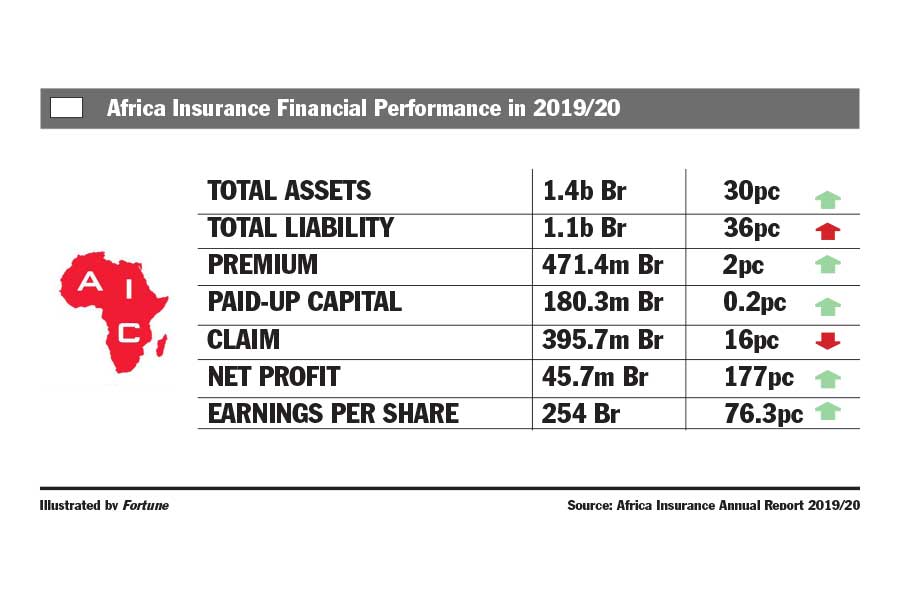
Fortune News | Dec 12,2020

Radar | Apr 16,2022
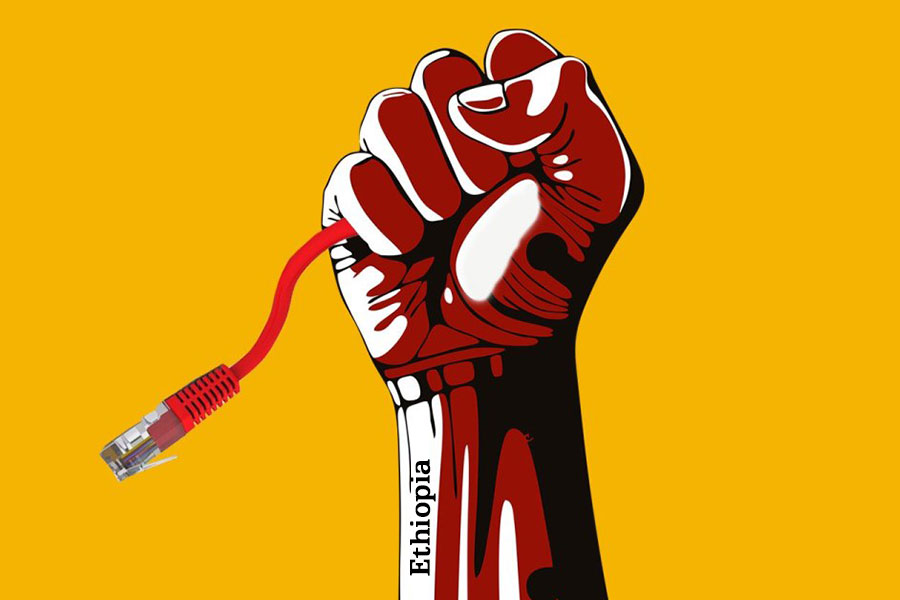
View From Arada | Jun 22,2019
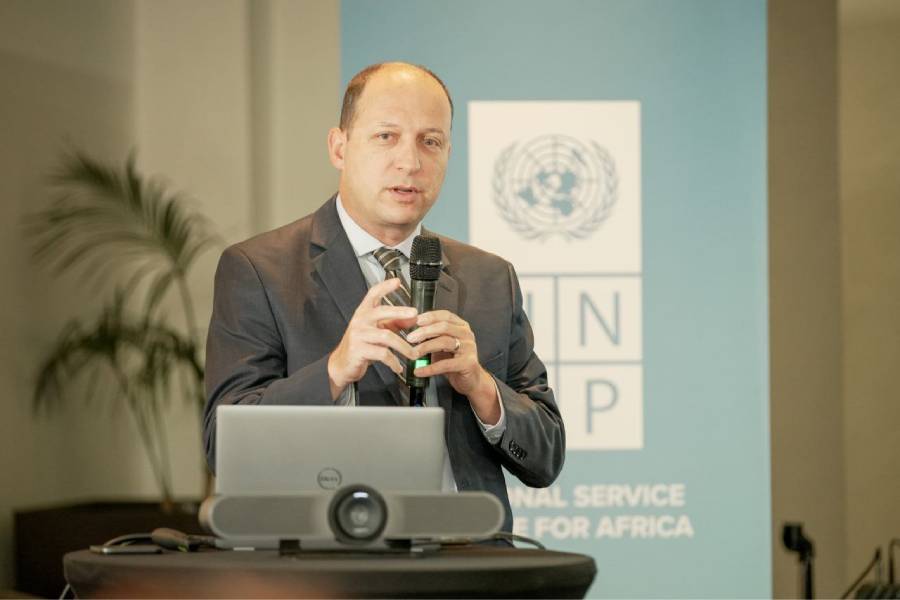
Fortune News | Sep 08,2024
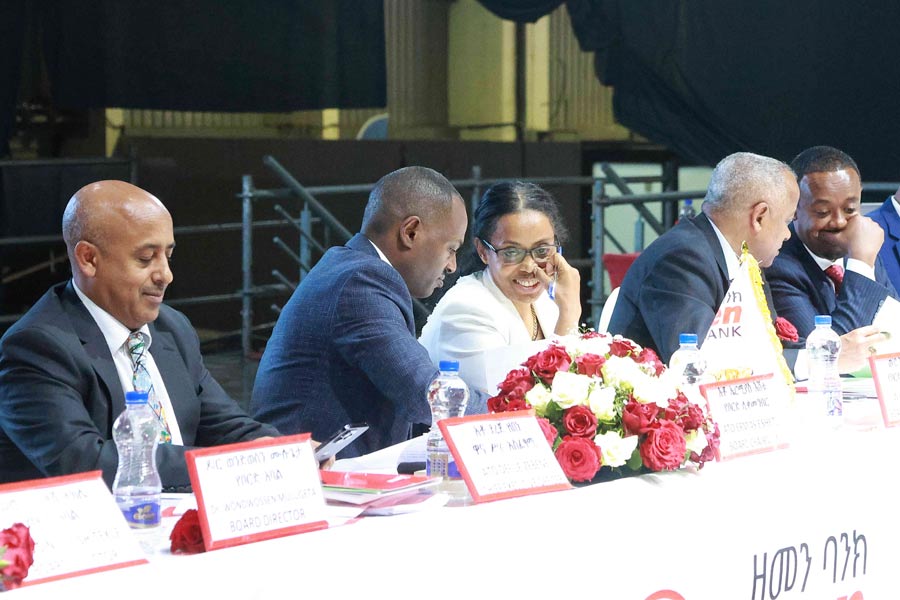

Viewpoints | Dec 17,2022

Viewpoints | Sep 19,2020
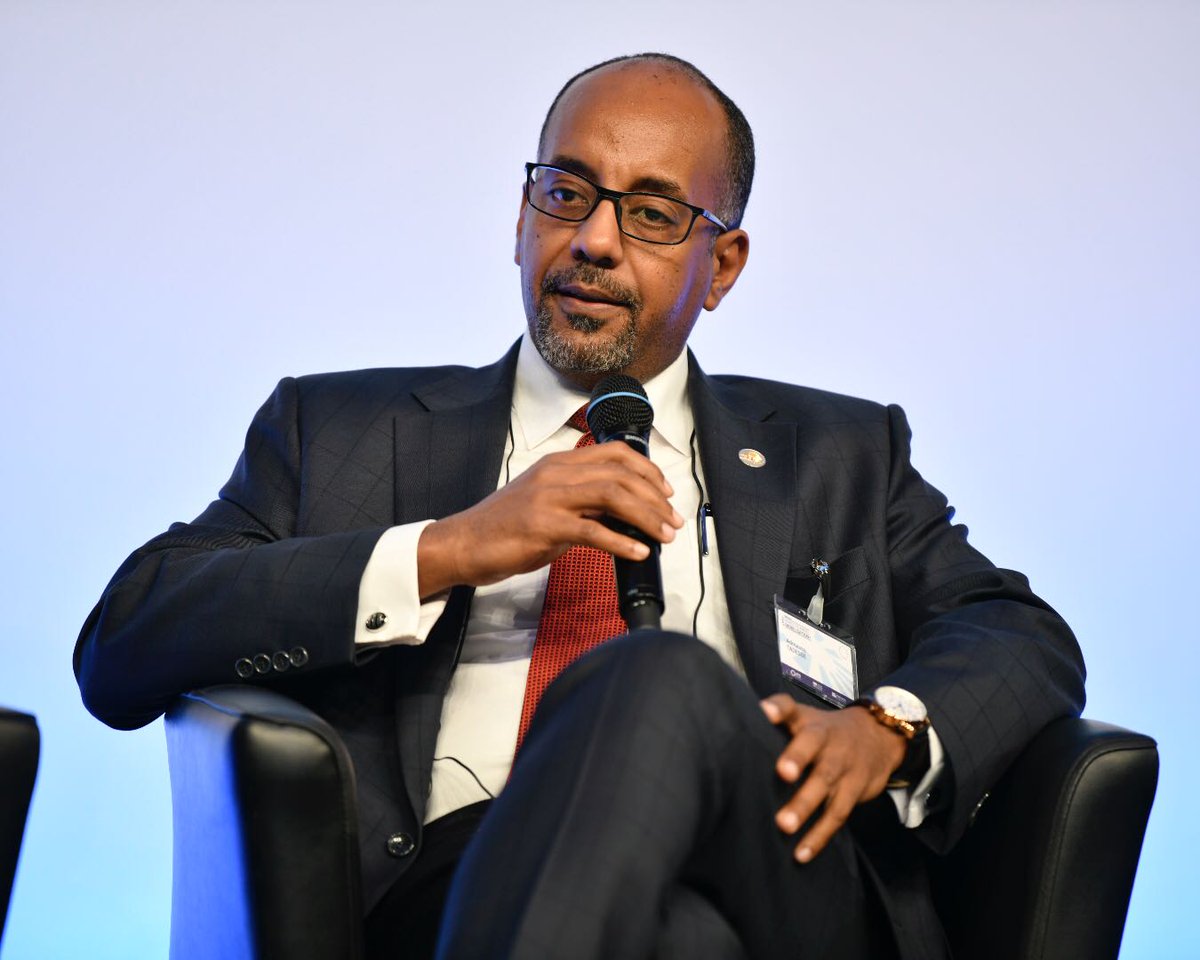
Exclusive Interviews | Nov 21,2018

Dec 22 , 2024 . By TIZITA SHEWAFERAW
Charged with transforming colossal state-owned enterprises into modern and competitiv...

Aug 18 , 2024 . By AKSAH ITALO
Although predictable Yonas Zerihun's job in the ride-hailing service is not immune to...

Jul 28 , 2024 . By TIZITA SHEWAFERAW
Unhabitual, perhaps too many, Samuel Gebreyohannes, 38, used to occasionally enjoy a couple of beers at breakfast. However, he recently swit...

Jul 13 , 2024 . By AKSAH ITALO
Investors who rely on tractors, trucks, and field vehicles for commuting, transporting commodities, and f...

Jun 28 , 2025
Meseret Damtie, the assertive auditor general, has never been shy about naming names...

Jun 21 , 2025
A well-worn adage says, “Budget is not destiny, but it is direction.” Examining t...

Jun 14 , 2025
Yet again, the Horn of Africa is bracing for trouble. A region already frayed by wars...

Jun 7 , 2025
Few promises shine brighter in Addis Abeba than the pledge of a roof for every family...